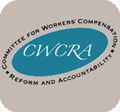| Home | Press Home | In the News | Arnold releases recovery plan
September 17, 2003 Arnold releases recovery plan David M. Drucker, Dailybulletin.com
SACRAMENTO – After weeks of media criticism for a campaign lacking in specifics, Republican recall candidate Arnold Schwarzenegger released an “economic recovery” plan to cut taxes, reform workers’ compensation and lower energy costs. The five-point blueprint accuses Gov. Gray Davis of squandering California’s position as the nation’s leading economy. To regain that status, Schwarzenegger proposes repealing the administration’s tripling of vehicle registration fees, clamping down on trial lawyers and rescinding excessive business regulations. “This plan addresses the fact that jobs are leaving California and that it is increasingly difficult for business owners to stay afloat due to the high cost of workers’ compensation and business regulations adopted by Gray Davis and legislative Democrats,” Schwarzenegger campaign spokeswoman Karen Hanretty said. The Davis administration disputes Schwarzenegger’s characterization of the state’s job climate, and claims overall employment has increased significantly since 1999. Unlike a budget proposal released in August by Lt. Gov. Cruz Bustamante — the lone established Democrat vying to replace Davis if he is recalled — Schwarzenegger’s plan does not include a tax increase and seeks to reduce the burden on businesses. But it also does not mention how Sacramento would recover the revenue it stands to lose to various tax cuts. On Saturday, a day after Schwarzenegger unveiled his plan while visiting a Los Angeles business preparing to move to Utah to save money, campaign manager Bob White said the actor-turned-politician would release details on his approach to the state budget in the next two weeks. Campaign officials said Wednesday that Schwarzenegger’s forthcoming budget proposal will explain how he would make up the revenue the state would lose to his tax cuts. Until now, Schwarzenegger has been mum on spending cuts, saying it will take an independent audit of Sacramento’s books to determine where to slash expenditures. But he intends to give voters a preview of where his audit will look to cut spending as early as next week, when his budget plan is likely to be unveiled. Officially titled “Restoring California’s Economic Competitiveness,” Schwarzenegger’s proposal blames Davis at every turn for California’s fiscal doldrums. It decidedly focuses on reducing corporate red-tape, addresses a host of concerns raised by business owners and offers a six-point energy plan. “In general, he seems to be going in the right direction, but my principal concern is the issue of taxation. I just don’t think that should be quietly dismissed,” economist and Inland Empire expert John Husing said. Economists lauded Schwarzenegger’s vow to reform the workers’ compensation insurance system and block the 60 percent increase in premiums businesses pay into California’s unemployment insurance fund scheduled for January. Additionally, repealing the vehicle fee hike would benefit consumers; and opposing the $3 billion property-tax hike on businesses via Bustamante’s proposal to amend Proposition 13 would at least prevent job growth from being hampered any more than it already is, economists said. Especially praised was Schwarzenegger’s plan to curb “excess” litigation. The film star and longtime businessman wants to reform the law that regulates the ability of lawyers to sue corporations on behalf of the public, ending what he calls an abuse of the system by trial attorneys. “This is a good idea and is long overdue,” said Jack Kyser, chief economist for the Los Angeles County Economic Development Corporation. Schwarzenegger, the Republican gubernatorial front-runner in the recall race, has been roundly criticized for a message long on promises of decisive leadership but short on policy specifics. Besides Democrats like Davis, the former body-builder has taken repeated hits from state Sen. and GOP candidate Tom McClintock of Thousand Oaks. And in fact, parts of Schwarzenegger’s five-point plan are general. Schwarzenegger wants to eliminate $250 million per year worth of abuse, fraud and waste in state government, but doesn’t outline where the savings would come from. He proposes a “uniform energy strategy” for California, but does not elaborate. Also mentioned are plans to slash hundreds of bureaucratic regulations from the books, but only one example — getting the state Building Standards Commission to adopt a more business-friendly building code — is provided. But Schwarzenegger campaign officials noted that the compressed election schedule did not allow the actor and his staff to formulate solutions to all of California’s problems prior to campaigning, something they otherwise would have done, and said the vague parts of the proposal are being refined such that Schwarzenegger will be able to hit the ground running upon taking office. The election is still scheduled for Oct. 7, less than three weeks away, because a federal court’s decision to delay the contest was stayed indefinitely. “The burdensome regulations and excessive waste created during the last five years by Gray Davis and his fellow Democrats requires more than five weeks to examine, and Mr. Schwarzenegger believes voters and small businesses deserve a thorough review of the damage that has been done,” Hanretty said. Kyser said a recent LAEDC survey shows business owners see Sacramento as one of the biggest impediments to their ability to grow and create jobs, and added that 8 percent of respondents are so concerned they are actively looking to move their companies out of state. That threat holds a particularly dark cloud over the Inland Empire, Husing said. Discount retailer Costco has vowed to move its logistical operations out of California if it is unsatisfied with the workers’ compensation reform just enacted by the Legislature. Such an exodus would likely affect the economy of Riverside and San Bernardino counties measurably. “The state is growing, and in previous campaigns we’ve had no vision for this growth, so (Schwarzenegger’s proposal) sounds like an interesting plan,” Kyser said. |
| | Monday, June 7, 2004 | | |
 | |
| Home | |
| CALIFORNIA RECOVERY TEAM | |
| About CRT | |
| GET INFORMED | |
| About Arnold | |
| Leadership | |
| Endorsements | |
| News Room | |
| Opinion | |
| JOIN THE TEAM | |
| Contribute | |
| Volunteer | |
| Share Your Views | |
| SERVICES | |
| Image Center | |
| Multimedia Center | |
| Downloads | |
| Search News | |
| Privacy Policy | |
| Contact Us | |
| ||||||||||||||||
|
Contact Us Privacy Policy |
Copyright © 2003 |


